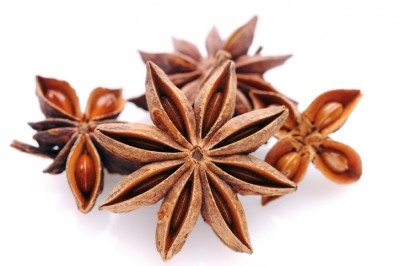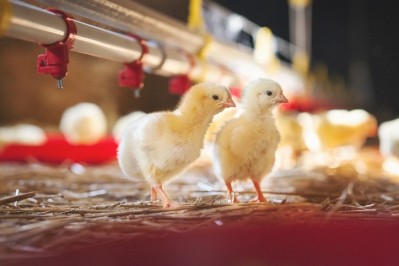Reports from EuroTier 2018
‘We wanted to invest in a company that was in the natural phytogenic space but had a scientific backbone’

He said consumers are increasingly looking for sustainable, wholesome food derived from natural origins, the original trigger for Cargill’s interest in phytogenics.
But why Delacon?
“Phytogenics is one of those categories that is still trying to find its place in the feed additive world as a truly scientific category. Delacon was the first company to have two of its products certified as zootechnical additives. We wanted to invest in a company that was in the natural phytogenic space but had a scientific backbone, and that is where Delacon hit the mark. Everything is research based, everything is backed by science, and that is what impressed us.”
Not all premix companies or feed manufacturers want to use zootechnical claims in terms of marketing.
“It is up to the premix or feed company to decide if they want to use such claims, but [from Delacon’s perspective] the zootechnical claim is about being able to demonstrate to people that this product is proven, it has mountains of data and research behind it. Therefore, [buyers] do not have to go by faith or trust – they can look at all the trials. That gives the product credibility.”
It is costly to get a zootechnical registration.
“The first product that Delacon got registered as a zootechnical additive was the Fresta swine product. It cost them somewhere in the region of €500K to €600K and it took them a couple of years to get it through. It it is a longish process.
“Inside of Europe, zootechnical certification carries a lot of weight but outside of Europe, it starts to become a ‘nice to have’.
“I think companies make their choices. It is a commitment to go after something like zootechnical registration. I know Pancosma has one of its products registered as a zootechnical additive, so it is not as if others are not doing this. It is more about who is making enough of a commitment and who has enough science behind [a product] to actually get it. I can’t answer for other companies as to the depth of their science or how incentivized they are to go after it, but when we were looking at who we wanted to partner with, Delacon really stood out."
Next steps
Keswani is responsible for the global market in terms of the Delacon partnership.
When asked what the next steps are in terms of growing the joint business, he told us:
"We are leveraging the strengths of both companies right now. Cargill has the advantage of scale and customer relationships worldwide. As you look at Cargill Premix & Nutrition (CPN) or the Provimi branded business, it has evolved from being just being a premix business to being more of a nutritional advisor and a business that brings value-added technologies to the customers. A technology like Delacon’s fits very nicely within that. As Provimi expands its value proposition to its customers, it is looking for these type of technologies.
“What we are doing right now is forming partnerships in various markets. We are working together in Russia, Brazil and Canada, bringing the strength of Cargill’s scale and customer relationships and combining that with the research and expertise of Delacon.
"We are also working on joint innovation [projects]. We are looking at products that bring a sustainability value proposition to our customers. We do not have many products that do that today. We are working on innovations to solve health challenges like coccidiosis, pooling our resources to do that.”
Future acquisition
The US agribusiness giant is also a minority shareholder in the Austrian plant extracts player. So will Cargill eventually look to grow it share of the Delacon business?
“Time will tell. Currently, that is not something we actively discuss. Our primary goal right now is to grow the business. It fits nicely with what we want to do.”
How does the partnership work in practice?
“The way we structured ourselves is that we also operate like a joint venture. We make many decisions together. We are deeply involved in each other’s strategy and influencing that.”
There is pairing of both technical and commercial staff from the two companies on projects, he explained.
“The commercial pairs look at where Delacon products can be distributed, how to create more commercial scale, where can we use Delacon products - we have a compound feed business inside of Cargill Animal Nutrition, for instance, that can adopt such technologies - and we have a host of commercial people looking for such win-win opportunities. There is a lot of trust between the two sides, and that is helping with progress.”
In terms of species applications, he said Delacon’s strength is in poultry, followed by swine and then by ruminants. “The portfolio goes across the breath of livestock species, though it is at different levels of maturity. Accordingly, that creates opportunities. So there is some opportunities for innovation in some of the species Delacon is less dominant in and there are more commercial opportunities where the innovation is already there.”
Integration of Diamond V
He also revealed how Cargill’s integration of Diamond V, the US company it acquired in December 2017, is advancing.
“We are going through our integration activities right now. We are in the early stages of dialogue [with Diamond V).
“But the more we are learning about the company, the more excited we are about what we have.”
“Diamond V is very mature – it has deep strengths in certain areas. However, I think the most interesting aspect of that company is its health and food safety value proposition. A lot of feed additives have a performance value proposition – you are going to get more eggs, more chicks, more milk in the tank, and Diamond V does all of that – but the true value of its products lies in how they improve the well-being of the animal, by improving the immune strength.”















